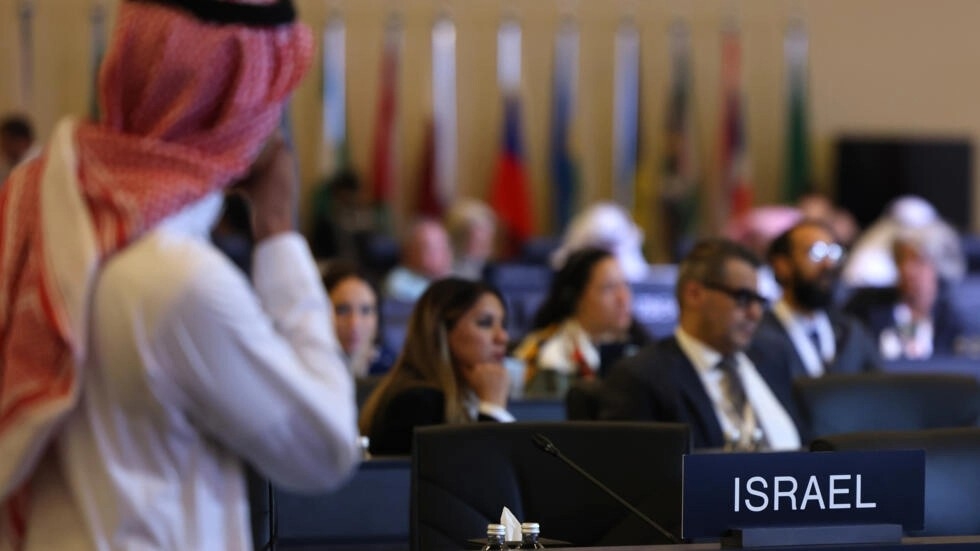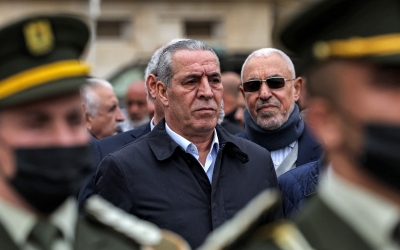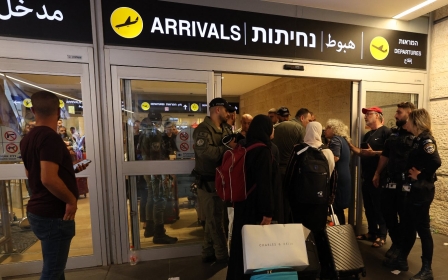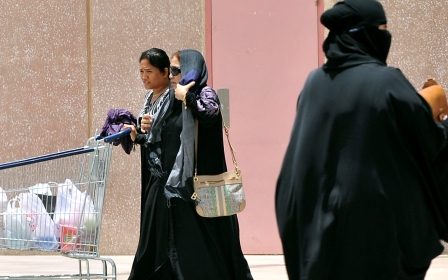Israeli delegation makes first visit to Saudi Arabia for Unesco meeting

A delegation of Israeli officials made their way to Saudi Arabia on Monday, marking their country's first publicly announced visit to the kingdom.
The five-member contingent arrived in Saudi Arabia on Sunday for a meeting of Unesco, the UN's cultural agency, to update the world heritage list of cultural and historic sites.
"We are happy to be here - it's a good first step," an Israeli official told AFP. "We thank Unesco and the Saudi authorities."
The Israeli delegation is being led by Amir Weissbrod, a deputy director-general in the Israeli Ministry of Foreign Affairs.
Israel left Unesco in 2019 after claiming the organisation was biased against them and are only attending the meeting as observers.
Saudi Arabia and Israel have no official ties, though their governments are believed to cooperate away from the public eye. Although Israel in recent years has normalised relations with several Arab countries, including Saudi Arabia's close allies the United Arab Emirates and Bahrain, Riyadh has yet to follow.
Monday's visit is the latest, and most visible, of their increasingly public ties. However, it is not being portrayed as a bilateral visit.
The groundwork for the Israelis' visit was laid out by Unesco in July, when Riyadh signed an agreement that would allow all member states to visit the kingdom without any obstacles.
In 2020, Israeli Prime Minister Benjamin Netanyahu secretly flew to Saudi Arabia to meet Crown Prince Mohammed bin Salman and then-US Secretary of State Mike Pompeo.
At the time, the Saudis denied the visit. Netanyahu did not, but said, "I am working on broadening the circle of peace."
In recent months, Washington has been leading efforts to strike a deal between Saudi Arabia and Israel that would see them establish formal ties.
Saudi Arabia has held out the offer to normalise ties with Israel since 2002 under the Arab Peace Plan, which called for an independent Palestinian state in the West Bank and Gaza Strip with East Jerusalem as its capital.
However, many analysts and people familiar with the Biden administration’s thinking told Middle East Eye they believe Riyadh would now settle for much less.
In exchange for normalising ties, Saudi Arabia reportedly wants security guarantees from the United States, help in developing a civilian nuclear programme and fewer restrictions on US arms sales.
While the Palestinian issue is not thought to be central to the agreement, a component of the deal would include possible benefits for the Palestinians.
The Palestinian Authority (PA), which governs parts of the Israeli-occupied West Bank, has in the past rejected similar US-brokered normalisation deals between Israel and Arab countries, including those with the UAE, Bahrain and Morocco.
A senior source in Fatah, the movement that dominates the PA, told MEE that some elements within the Ramallah-based authority are reconsidering this approach.
“They think normalisation is happening with or without us, so they may as well benefit from it, at least politically and financially,” the source said.
Middle East Eye propose une couverture et une analyse indépendantes et incomparables du Moyen-Orient, de l’Afrique du Nord et d’autres régions du monde. Pour en savoir plus sur la reprise de ce contenu et les frais qui s’appliquent, veuillez remplir ce formulaire [en anglais]. Pour en savoir plus sur MEE, cliquez ici [en anglais].





